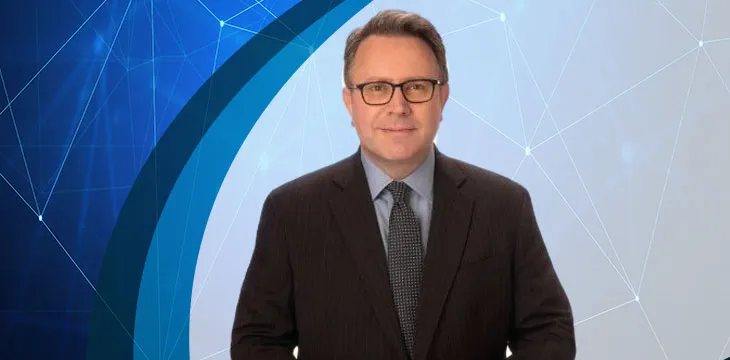|
Getting your Trinity Audio player ready...
|
We interviewed law veteran Rick Levin on some of the most pressing issues surrounding the cryptocurrency space.
As the blockchain industry moves forward, it is not unforeseen that there would be bumps along the way. But what we may have not foreseen was the gravity of these bumps—the damages caused by hacks have hit the 11-digit mark. As of December last year, Reuters estimated this figure to be around $15 billion for BTC alone, with recent hacks adding to the total sum for cryptocurrencies overall, and with probably more to come.
Apart from the obvious cryptocurrency hacks and cybercrime, there are other, far less conspicuous criminals on the loose—and their crimes far harder to prove. With token creation becoming easier even for those with no coding background, pump and dump ICO’s have become rampant—by anonymous or otherwise unverified entities no less.
We turned to law veteran Rick Levin, chair of the FinTech and Regulation Practice at the AmLaw 100 law firm Polsinelli whose more than 20 years of experience with large investment firms and encyclopedic knowledge of the FinTech industry and regulatory environment the world needs now more than ever. Below, he gives his insights to some of the most pressing issues surrounding the cryptocurrency industry.
Exit scams
Exit scams are now becoming a disturbing trend, with ICO founders bailing out shortly after an explosively lucrative token sale and using “hacks” as a scapegoat for their closure. Proving this would be difficult due to the anonymity (or pseudonymity) of wallet addresses—for all we know, the founders hacked their own platform. How are regulators equipping themselves to possibly eradicate such a practice given the technical gaps?
What you call exit scams and others refer to as pump and dump schemes are a serious issue. While the pseudonymity afforded by blockchain technology is a cornerstone of its development, it offers unscrupulous users the ability to attempt to conceal their identity. However, as was the case with Ross Ulbricht of Silk Road who used the pseudonym, Dread Pirate Roberts, the government was able to ascertain his identity, arrest and criminal prosecute him. Mr. Ulbricht is now serving two life sentences in a federal correctional facility.
The SEC and CFTC will be unable to eradicate the use of blockchain technology for nefarious purposes. However, the agencies will use their ability to ask for an emergency court order to freeze the assets and the accounts of parties the agencies believe have violated the law. The agencies can also ask a court to enter an order permanently enjoining the alleged violations of law. If the agencies believe the parties have committed a criminal violation of the securities or commodities laws, they will make a referral to the Department of Justice which can initiate a criminal prosecution and arrange for the parties to be taken into custody by the FBI.
Trade manipulation
Trade manipulation is a serious allegation that can be hard to prove. In such cases like the Tether-Bitfinex trade manipulation and pump allegations, how can law enforcers definitively prove or disprove illegal practices?
The SEC and the CFTC are charged with maintaining market integrity and protection of the investing public. The agencies have considerable investigatory resources they can marshal to prove market manipulation and fraud. In many cases blockchain data, trading records on crypto exchanges, email and instant messaging communications, and bank records can be used to establish the manipulation.
Ponzi schemes
Big-time Ponzi schemes like Bitconnect and Davor, while they take advantage of new technology for their schemes, aren’t exactly new. Could regulators have taken them down earlier, before they amassed so much money and gained enough influence to matter? If so, why didn’t enforcers do that?
The agencies are working hard to deal with the flood of ICOs and other digital assets that are being launched by legitimate and nefarious actors. I do not believe regulators could have prevented scammers from launching their offerings.
Bitconnect and Davor – promoters, founders, and members
If there will be any prosecution against similar companies, how wide is the scope of that prosecution—will it be just the founders, or will promoters and members be included? After all, they all were involved in the pyramid scheme regardless of whether they realize it or not.
Any civil or criminal action against the issuer will more than likely also identify the officers of the issuer of the digital asset and any third parties they hired to solicit potential investors. Parties that engage in sales of securities without a registration or an exemption from registration may be subject to enforcement actions by the SEC, relevant state regulators, as well as investor actions for rescission. The SEC and the state regulators have authority to enforce respective federal and state securities laws through administrative proceedings, civil court proceedings, and referrals for criminal prosecutions.
The SEC can bring an action in court and seek permanent or temporary injunction or a restraining order against a party that has violated the securities laws. In addition to an injunction, the SEC may also seek civil penalties and equitable relief for such violation. The SEC may transmit such evidence of securities laws violations to the attorney general, who may, in his or her discretion, institute the necessary criminal proceedings under the securities laws.
Anonymity and fake profiles
This is perhaps, one of the biggest challenges regulators and enforcers now face. In an age where anonymity and fake profiles have been quite efficient in protecting criminals, how do regulators plan to fight back?
The SEC, the CFTC, and the Department of Justice have considerable capabilities to investigate and identify parties that are engaging in civil or criminal violations of the securities and commodities laws. While cryptographers may think they can evade detection of their illegal activities, the government will eventually catch up with them.
Balancing legislation
Are regulators zeroing in on a framework that would circumvent technical gaps and vulnerabilities while also balancing the freedom that blockchains provide—such as in the tug-of-war between privacy (anonymity) and security (transparency, KYC/AML)?
Members of Congress in both parties are currently struggling with this issue. There is a desire to promote innovation and a fear that certain technologies may facilitate criminal activities, money laundering and terrorist financing. It is difficult to predict where Congress and the President will come out on these issues.

 06-30-2025
06-30-2025 





